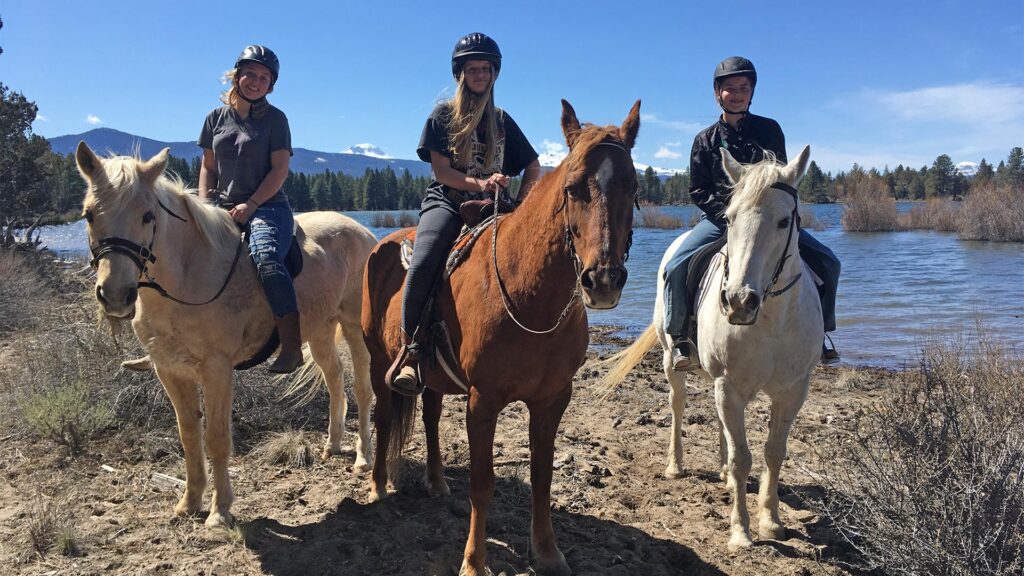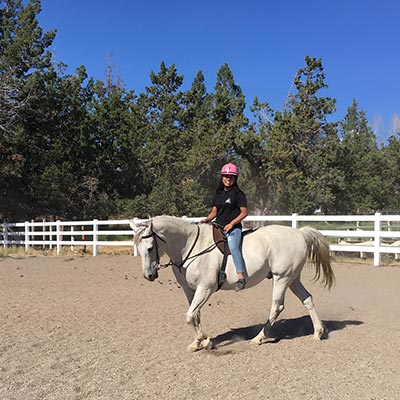
Holistic Horsemanship
In addition to our Equine Inclusive Therapy (EIT) the Academy at Sisters developed our Holistic Horsemanship Program (HHP) to provide the students more opportunities to engage with our horses.
Adolescence is a time where youth are learning who they are, what they value and who they want to be. With the social pressures our kids face today through the barrage of noise and chatter from social media, movies, social pressures and expectations, peer groups, etc. they become confused about who they are. They are encouraged to fit in, look and dress a particular way, say the right things, go along with the group, be polite instead of strong, to follow vs. lead.
By teaching kids how to understand and navigate the quiet world of equine communication, we can empower them to awaken the deep parts of themselves they have learned to ignore and empower the parts they have yet to develop.
HHP offers weekly opportunities for students to develop stronger relationships with our horses while advancing their equine skills. The students work their way through a curriculum designed to provide individualized goals for each participant. The focus of this program is to teach the participants how to create healthy, connected relationships with horses that translate into their relationships elsewhere. Through this process, for students who are interested, they may earn the ability to ride. All students begin their journey in the arena and may eventually be able to explore beautiful Central Oregon on the back of their equine companion.
Benefits of Holistic Horsemanship Programs:
- Provides insight as to how their own behaviors can affect others around them
- Works in a trauma informed lens for youth and the horse
- Provides honest and direct feedback
- Addresses every learning style
- Offers real-time opportunities to practice and master skills
- Develops non-verbal and verbal communication skills
- Offers non-coercive connections with the horses
- Develops self-advocacy, self-reliance, and self-awareness
- Teaches problem solving skills and responsibility
- Teaches Emotion Regulation/Distress tolerance
- Cultivates healthy relationships, develops empathy and an understanding of their own emotions
- Develops Risk Assessment skills
- Offers an opportunity to practice and incorporate Dialectical Behavioral Therapy and other coping skills
- Helps students Master Mindfulness
- Reduce the negative impacts of early childhood trauma

